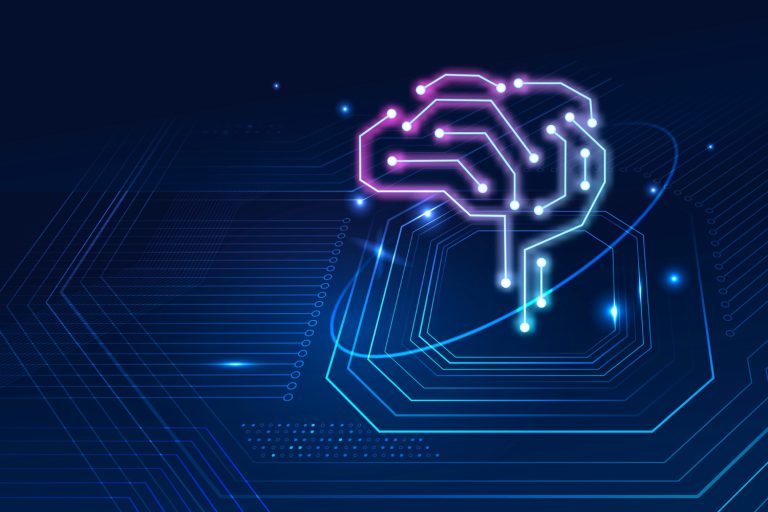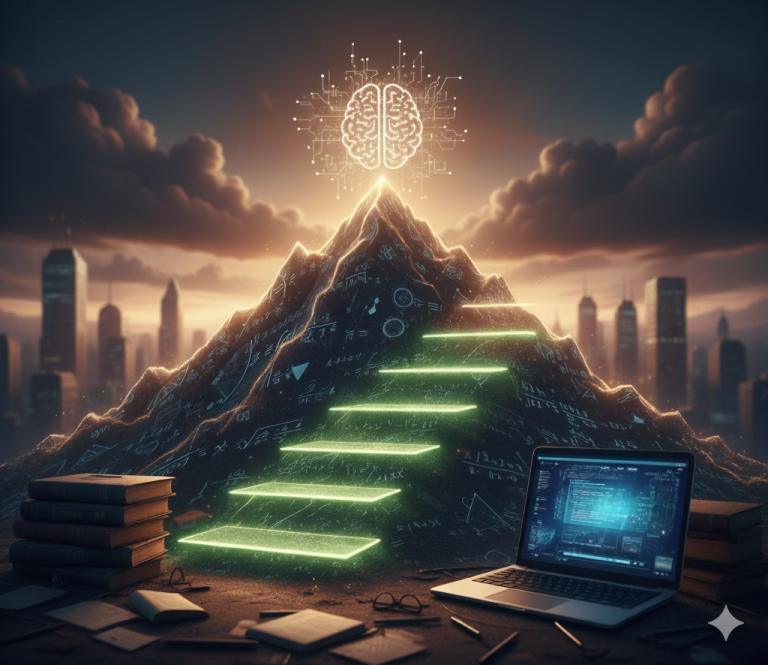Table of Contents
This is where theory and all the applications we learned about machine learning all come together, The last piece of the puzzle of learning machine learning – The Machine Learning Engineer Roadmap 2025 with resources.
So far in this series we covered:
What is Machine Learning – The fundamentals and the importance of machine learning field.
Machine Learning Problems – Different type of categories of machine learning problems and their applications in real world.
Machine Learning Process – Step by step guide from data collection to deploying a machine learning model.
Machine Learning Tools and Mathematics – All the core tools and math that form this transformative field of machine learning
So, now we will dive into step by step roadmap to learn machine learning with the resources mostly free. It doesn’t matter whether you are a beginner or an expert in this field, this roadmap will offer a structured plan to help you navigate the journey of machine learning.
It is not a must to follow only this roadmap as we all know machine learning is all about exploring you can explore more and find your own curiosity to learn this field. But this roadmap I will guide you what are the topics that you needed to cover in order to understand every concept of machine learning.
Foundational Knowledge
When we are going to learn about machine learning most people think the first thing you need are the theories of machine learning. It is fine to start machine learning theories but when you dive deep into the field you will surely find this boring and difficult to continue. Therefore, before dive into machine learning, what we need is foundational knowledge. When it comes to foundational Knowledge we will need the basic of programming skills, mathematics and statistics, SQL and database, Data handling and version control.
Programming skills:
The most widely used programming language in machine learning field is Python. I say it is the easiest programming language to learn but you need to master that. Then you will need to know the knowledge of object-oriented programming concepts (OOP) using python language. To learn these concepts, I recommend following two video tutorials which are free and you can learn form YouTube by following the link.
Harvard CS50’s Introduction to Programming with Python – Full University Course taught by David J. Malan
Python Object-Oriented Tutorial playlist by Corey Schafer

Mathematics and Statistics
Then you will need the knowledge of mathematics and statistics which I consider as the backbone of machine learning. Here you will learn the concepts like Linear algebra, calculus, probability, and statistics. To learn these, I will recommend following resources both free and paid ones. Following either only free resources or paid resources will be enough.
Free:
- John Krohn’s Linear algebra YouTube playlist
- John Krohn’s Calculus YouTube playlist
- Khan academy Probability and Statistics Course
Paid (with certificates):
- Mathematics for machine learning specialization imperial college (Coursera)
- Probability & Statistics by Deep learning (Coursera)
SQL and Database
It is important to know how the data is interacted using databases for handling large datasets and SQL will play a crucial role in this part. Following the three free resources will be more than enough to get an understand of how SQL and Database works.
- SQL YouTube tutorial for beginners by freeCodeCamp
- Relational database certificate by freeCodeCamp
- SQL YouTube Tutorial for Beginners (and Technical Interview Questions Solved) by freeCodeCamp
Data Analysis and Visualization
This will be crucial for data handling as data analysis and visualization needed to understand how preprocessing of data is done before feeding them to machine learning models. For this these free resources will cover all the concepts you needed to know.
- Data analysis certificate by freeCodeCamp
- Data Analysis with Python Course YouTube tutorial- NumPy, Pandas, Data Visualization by FreeCodeCamp
- Python Data Science Handbook – Jake VanderPlas
Data Structures and Algorithms
Whether you are a software engineer or a ML and AI engineer without data structures and algorithms you won’t exist. If someone wants to be an expert in the field of computer science he needs to have a very good knowledge about data structures and algorithm. To learn this, we will again go to some free resources offered by freeCodeCamp which is true gem for learners worldwide.
Version Control
Just like data structures and algorithms, version control is a must to become an expert in computer science field. Learning Git and GitHub is very important to manage the code and collaborate effectively in projects. By the following crash course which is again offered by freeCodeCamp is more than enough to get all the needed knowledge about Git.
Cloud Computing
Just like machine learning and AI, Cloud computing will be the next big thing in the world. All the experts likes to deploy their models in online cloud platform rather than in their own local machine which will be limited to only himself. Google Cloud, Amazon Web Services, Microsoft Azure are some of the big names in the cloud computing. You can learn with following resources which will be provided by none other than the relevant platform itself.

Machine Learning Knowledge
Finally, the wait is over now you are going to actually learn machine learning for real. After all the foundational knowledge in on the table it is time dive deep into the core concepts of machine learning.
The only course you needed to learn the basics of Andrew Ng’s Machine Learning Course on Coursera. It is like the bible of Machine Learning. I don’t think there are machine learning engineers who had not done this course. You can do it for free but if you want to obtain a certificate you need to pay which I’m assuring will not go in vain. After that course there is an amazing free YouTube tutorial by freeCodeCamp which is the best hand on introduction tutorial to learn machine learning. These two will be more than helpful for anyone to get started.
- Machine Learning Specialization by Andrew Ng (Coursera)
- Machine Learning with Python and Scikit-Learn YouTube tutorial– Full Course by freeCodeCamp
Deep Learning Knowledge
After learning the machine learning concepts, we dive into a little advanced subset of ML that is deep learning. Again, to learn this Andrew Ng comes to save us with an amazing course which can be learn free and if you want a certificate you should pay.
After that we need to understand how the two big dogs of deep learning platforms PyTorch and TensorFlow works. For this Daniel Bourke have made two amazing tutorials on YouTube where you can learn free and master the both platforms while slowly becoming an expert in machine learning.
- Deep Learning Specialization by Andrew Ng and others (Coursera)
- Learn PyTorch for deep learning YouTube tutorial by Daniel Bourke
- Learn TensorFlow for deep learning YouTube tutorial by Daniel Bourke
Advanced Knowledge
Want to become a unique ML or Ai engineer, then the simple thing to do is learn about advanced topics of machine learning and outshine others. Here I will only mention few as you know machine learning is all about exploring follow your own curiosity and learn more it will be beneficial for you.
Model Deployment and System Design
This is a broader topic and is essential to complete an end to end machine learning project. With the help of the tools like Flask, Fast.api, Docker and Kubernetes we can deploy machine learning models accessible to real world with scalability and portability.
- FastAPI official tutorial
- Learn Flask for Python – Full YouTube Tutorial by freeCodeCamp
- Streamlit Documentation
- Docker Containers and Kubernetes Fundamentals – Full Hands-On Course
MLOps
To effectively deploy, monitor, and maintain ML models, MLOps integrates DevOps with ML. With cloud systems like AWS SageMaker and tools like MLflow and Kubeflow, it guarantees scalability and reproducibility.
- MLOps Bootcamp: Mastering AI Operations for Success – AIOps by Udemy
- MLOps with AWS – Bootcamp – Zero to Hero Series by Udemy
- MLOps YouTube Course – Build Machine Learning Production Grade Projects by freeCodeCamp
- Preparing for Google Cloud Certification: Machine Learning Engineer Professional Certificate by Coursera
Natural Language Processing
Natural Language Processing is machines are able to understand the human language and they can process according to human interactions. Chatbots , translation, summarization tools are built using this NLP
Generative AI
Generative AI uses models like GANs and transformers to produce fresh text, image, and music material. Chatbots, artwork, and content production tools like DALL·E and ChatGPT all use it.
- Generative AI for Everyone by Coursera
- Generative AI for Software Development Skill Certificate by Coursera
- Generative Adversarial Networks (GANs) Specialization by Coursera
- Generative AI with Large Language Models by Coursera
Other than these topics there are many advanced topics in ML like Large Language Models, Reinforcement learning, Computer vision and etc. It is better to follow your own curiosity and explore many more advanced topics of machine learning then find what interest you most and master that section. It is all about exploring.
Books
- “The Hundred-page Machine Learning Book” by Andriy Burkov : A simple yet detailed guide on machine learning that is perfect for both novices and seasoned professionals. Without needless complexity, it covers important ideas, algorithms, and helpful guidance.
- “Machine Learning Yearning” by Andrew Ng : One of the top experts in the industry has created a brief, free handbook on how to effectively organize machine learning projects..
- “Hands-On Machine Learning with Scikit-Learn, Keras, and TensorFlow” by Aurélien Géron : A useful book that uses real projects to teach deep learning and machine learning. For developers who want to use Python libraries to create and implement real-world machine learning models, this book is ideal.
- “Deep Learning” by Ian Goodfellow, Yoshua Bengio, and Aaron Courville : An important book for learning the theory and concepts of deep learning. Anyone who wants to learn more about neural networks and cutting-edge AI should read it.
- “Designing Machine Learning Systems: An Iterative Process for Production-Ready Applications” by Chip Huyen : This book is perfect for anyone working on end-to-end machine learning processes and real-world applications because it focuses on the practical aspects of developing and implementing machine learning systems.

Bonus
With these resources you can learn machine learning further more and they are very good to use throughout your machine learning roadmap
- IBM Data Science Professional Certificate by Coursera : Python, data analysis, machine learning, and visualization are all covered in this extensive program. For novices wishing to launch a career in data science, this program offers practical projects and real-world applications.
- FreeCodeCamp all the professional certificates including web development : Web development, data analysis, and machine learning credentials are available through free, self-paced courses. Great for students looking for real-world experience with community support.
- Sotabench: State of the art of Machine Learning
- Papers with Code: Latest machine learning researches
- Made with ML: Build anything with machine learning
Practical Experiences
Although understanding the theory behind machine learning is essential, real knowledge and skill development occur when that information is put to use through practical application. Working on real-world projects enables you to address issues that are rarely discussed in theoretical classes, like deployment, performance tweaking, and complicated data.
Kaggle, a gathering place for data science enthusiasts, is among the greatest sites for obtaining real-world experience. Kaggle gives users access to competitions, real-world datasets, and community-driven learning. You may tackle a variety of machine learning tasks, hone your coding abilities, and pick up sophisticated strategies from other competitors by competing.
As you advance, start building a personal portfolio that highlights your completed tasks. A range of tasks, including data collection, model deployment, and exploratory data analysis, should be highlighted in this portfolio. Because it shows that you can apply theoretical knowledge to real-world situations, a well-organized portfolio can greatly improve your chances of landing a job.
In addition to projects, think about starting a blog or documenting your educational path. In addition to strengthening your understanding, exchanging case studies, tutorials, and thoughts with the machine learning community fosters a sense of community. A blog can be used as a tool for personal branding, demonstrating your knowledge and enthusiasm for the subject.
Finally, work together on open-source projects or support continuing research efforts. Collaborating in groups on practical applications develops your problem-solving and cooperation abilities, preparing you for the cooperative nature of industry tasks.
Conclusion
As we reach the end of this series, I hope it has provided you with a clear and structured path to mastering machine learning. From understanding the basics and exploring real-world machine learning problems to diving into all the tools, mathematics, practical applications, the process and the roadmap this series of articles will help you at every step of your journey.
Machine learning is not just a field of study but a transformative factor that will change the shape of our world. The knowledge, skills, and resources shared in this series can be your foundation for your growth in this field. Remember, the journey will not end here actually the journey is just getting started. As I alwys say machine learning is all about exploring and find your own curiosity. Whether you’re solving complex problems, contributing to research, or building impactful machine learning models, every step brings you closer to mastering this exciting field.
Thank you for joining me in this series. Keep experimenting, stay curious, and continue to push the boundaries of what’s possible with machine learning. The future is yours to shape! Stay tuned with TechWiseAid for more articles and tutorials not only about the field of machine learning but also of the field of entire computer science.




